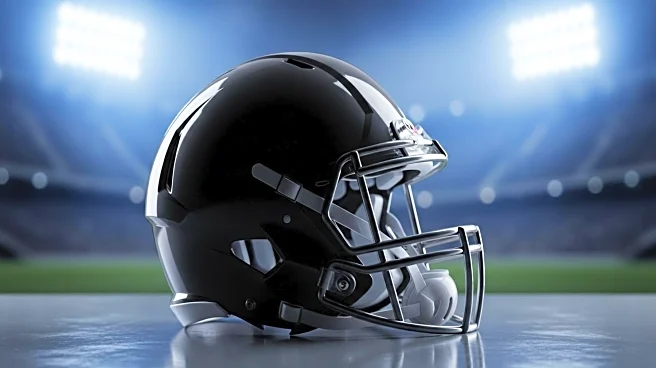What's Happening?
Rashee Rice, a wide receiver for the Kansas City Chiefs, has been suspended for six games by the NFL due to a violation of the league's personal conduct policy. The suspension stems from Rice's involvement in a high-speed car accident in Dallas on March 30, 2024, where he was driving a Lamborghini Urus at 119 mph, resulting in a multi-car collision. Rice was charged with aggravated assault and other offenses, leading to his arrest and subsequent guilty plea to felony charges. He was sentenced to probation and jail time. Rice's suspension will end after Week 6, allowing him to return in Week 7 against the Las Vegas Raiders.
Why It's Important?
The suspension of Rashee Rice highlights the NFL's strict enforcement of its personal conduct policy, which aims to maintain the league's integrity and reputation. This incident underscores the potential consequences athletes face when involved in legal issues, affecting their careers and team dynamics. The Chiefs, relying on Rice as a key player, must adapt their strategy during his absence. The situation also serves as a reminder of the importance of responsible behavior off the field, as legal troubles can have significant repercussions for professional athletes.
What's Next?
Rashee Rice is set to return to the field in Week 7, which will be crucial for the Chiefs as they aim to strengthen their offensive lineup. The team will need to integrate Rice back into their strategy while ensuring he adheres to the league's conduct standards. The NFL may continue monitoring Rice's behavior, and any further violations could lead to more severe penalties. The incident may prompt discussions within the league about player conduct and the support systems available to athletes facing legal challenges.
Beyond the Headlines
Rice's case raises questions about the pressures faced by professional athletes and the support they receive in managing personal issues. The incident may lead to increased scrutiny of the NFL's conduct policy and its effectiveness in deterring off-field misconduct. Additionally, it highlights the role of legal systems in holding athletes accountable, potentially influencing public perception of sports figures.









